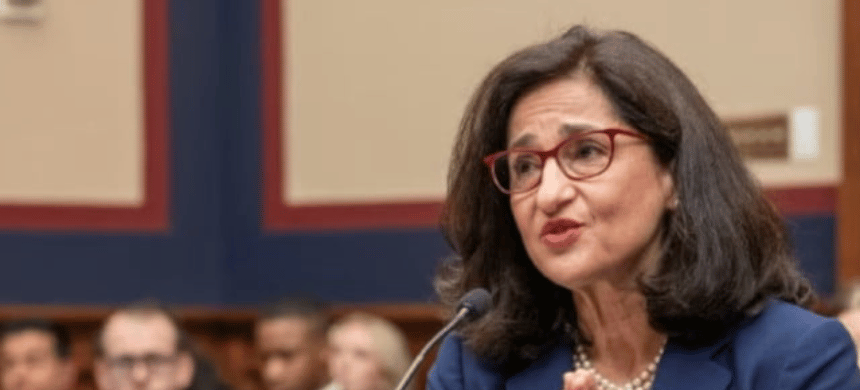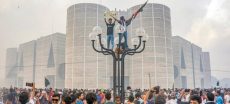Columbia University President Minouche Shafik announced her resignation on Wednesday, following significant criticism over the university’s handling of protests regarding the Israel-Gaza conflict.
Shafik stated she wanted new leadership in place before the upcoming term starts on September 3, as student protesters plan to resume their demonstrations. “It has… been a period of turmoil where it has been difficult to overcome divergent views across our community. This period has taken a considerable toll on my family, as it has for others in our community,” she said in her resignation statement.
Katrina Armstrong, the dean of Columbia’s medical school, will serve as interim president. Armstrong acknowledged the challenges faced by the university over the past year.
READ MORE — A university student has discovered oil reserves in Khyber Pakhtunkhwa
Columbia experienced significant unrest in April and May, as protesters occupied parts of the campus in response to Palestinian civilian deaths in Gaza, leading to hundreds of arrests. Shafik faced backlash from both sides: she was criticized by protesters for calling the police to disperse demonstrations and by pro-Israel supporters for not taking a stronger stance.
The student group Columbia University Apartheid Divest welcomed her resignation but emphasized that it should not distract from their goal of urging the university to divest from companies that support Israel’s military actions.
Republican Representative Elise Stefanik, a vocal critic of university leadership during congressional hearings regarding Gaza protests, called Shafik’s resignation “overdue,” citing her failure to protect Jewish students.
Shafik, an Egyptian-born economist with British and US citizenship, previously held prominent positions, including deputy governor of the Bank of England and president of the London School of Economics. After leading Columbia for just over a year, she plans to return to the British House of Lords and chair a review of the government’s approach to international development.
Her leadership was particularly challenged when pro-Palestinian protesters erected numerous tents on campus. In an unusual move, Shafik requested police assistance to remove the encampments, which led to significant arrests and further protests. The university’s actions were met with criticism from rights groups, students, and faculty.
The ongoing conflict has had devastating consequences, with reports indicating that nearly 40,000 Palestinians have been killed and millions displaced, prompting allegations of genocide against Israel, which it denies.











